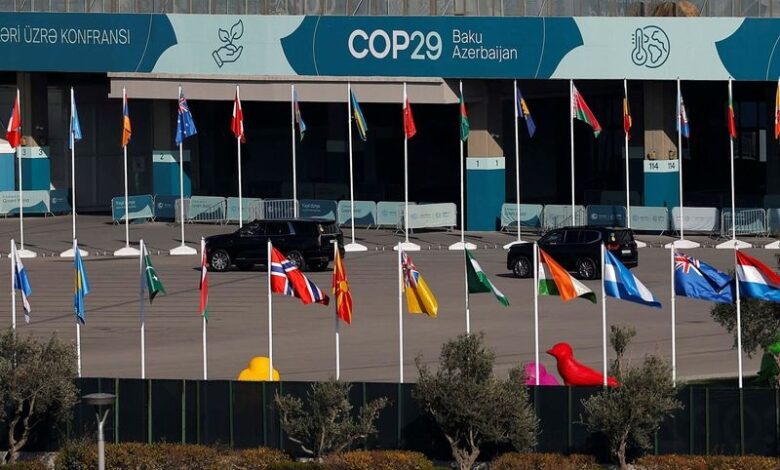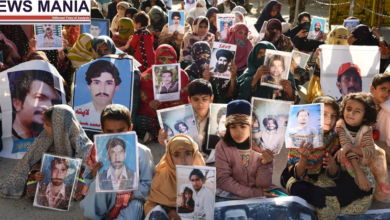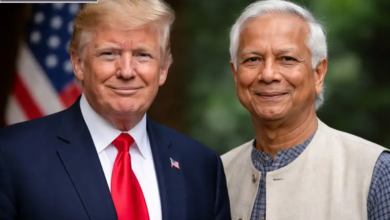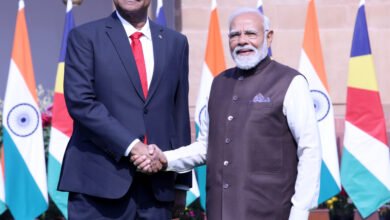Russia’s emissions claim in areas of occupied Ukraine sparks COP29 protests

Ukrainian authorities and activists at this week’s COP29 climate meeting have protested Russia’s inclusion of the areas it occupies in Ukraine in its most recent greenhouse gas inventory report to the UN. Moscow’s action comes as Russian President Vladimir Putin considers possible peace talks with U.S. President Donald Trump, which might determine the future of large areas of land.
“We see that Russia is using international platforms to legalise their actions, to legalise their occupation of our territory,” Ukraine’s Deputy Environment Minister Olga Yukhymchuk told According to her, Ukraine has contacted representatives of the United Nations Framework Convention on Climate Change (UNFCCC), the primary climate body of the United Nations, to request that the conflict be settled. Requests for comment submitted Thursday were not answered by representatives of the UNFCCC or the Russian foreign ministry.
Russia’s 2022 National Inventory Report on greenhouse gas emissions, which Moscow sent to the UNFCCC on November 8, is in question. Russia stated in the submission, which was examined by Reuters, that it was only able to supply data for 85 of its 89 territories “because baseline data on land use for the territories of the Donetsk People’s Republic, Luhansk People’s Republic, Zaporizhzhia, and Kherson regions, annexed in September 2022, is not available.”
In its previous reporting submissions to the UNFCCC, Russia had previously included emissions from the 2014 annexation of Ukraine’s Crimea peninsula. In 2020, it also submitted a report to the U.N. Global Biodiverity Framework that includes proposals for land development in Crimea. Speaking to participants at the COP29 meeting earlier this week, Ukrainian Environment Minister Svitlana Grynchuk brought up the matter, claiming that Russia’s reporting on Ukrainian areas compromises the credibility of international climate initiatives.
Yukhymchuk told Reuters this concern is based on the risk of double-counting of emissions over territories that together exceed the size of Portugal and Azerbaijan.
“It will bring us to a point that we do not achieve any of our goals if we don’t have proper reporting under the Paris Agreement,” she said.
The conflict, according to Nikki Reisch, head of the Climate & Energy Program at the Center for International Environmental Law, demonstrated how geopolitical unrest was taking the focus away from efforts to combat global warming. “I think that is a sign of the times,” said Reisch on the sidelines of the COP29 summit. “We’re living amidst rampant conflicts, and that is certainly infecting these talks.”
Russia’s reporting on Ukraine’s emissions, according to Christina Voigt, a law expert at the University of Oslo, breached Ukraine’s sovereignty and might even be against the law. “Claiming emissions is perhaps not illegal – but claiming emissions as if they were from their own territory, while they are in fact generated on another country’s territory, is a unilateral declaration in violation of the international legal status of that territory,” Voigt said.
She said Russia’s claim of the annexed lands’ emissions could become even more problematic if Moscow eventually claims emissions reductions on these lands and offers them as offset credits to carbon markets.
“This would indeed be an illegal appropriation of a good belonging to the other state,” she said.






